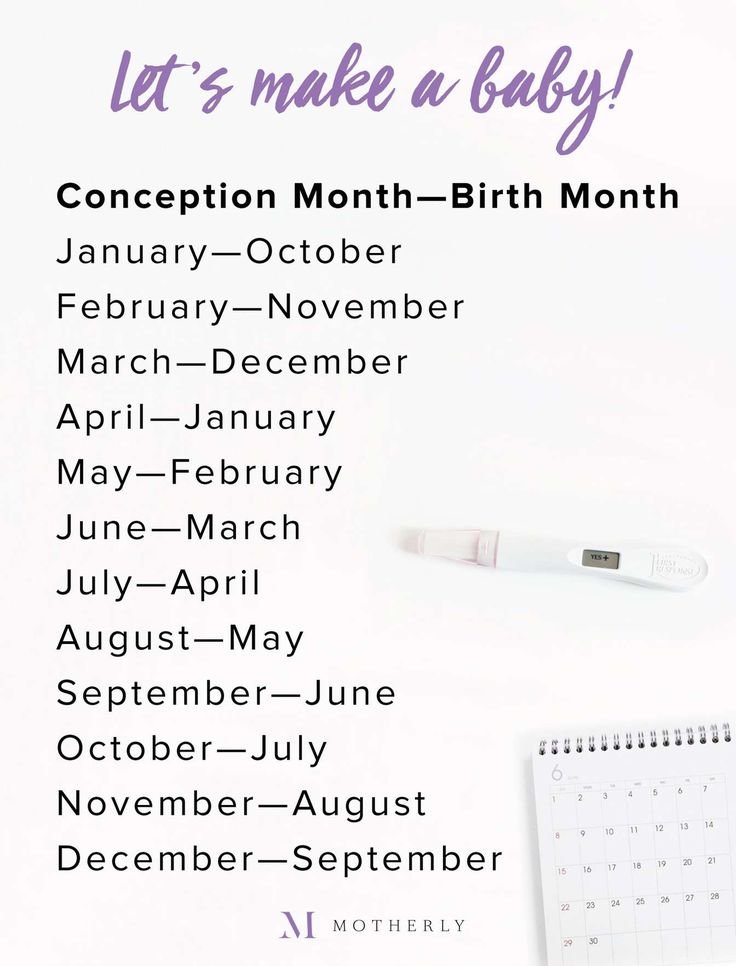![]()

Pretty much every mama out there has found themselves searching the internet for a due date calculator. Whether you are trying to conceive with specific timing in mind, or are already pregnant and curious to know when your little bundle will arrive, thinking about due dates is super exciting.
When determining your due date, we often start with your last menstrual period, or LMP (the first day of your last period, to be exact). From there, we can estimate the due date based on a mathematical equation (which we’ll share in a minute). But what if you don’t remember the first day of your last period? Or what if you are someone who doesn’t get regular periods? No problem! As I share in The Motherly Guide to Becoming Mama, it’s common for women not to know when their LMP was. If that’s the case, your doctor or midwife will likely recommend an ultrasound to help determine how far along you are.
Quick Contents
Let’s discuss what due dates are, and most importantly, how to determine when your due date is.
What is a due date?
Due dates can encompass a range of terminologies, all referring to the same thing. You might hear:
- Estimated date of delivery (EDD)
- Estimated date of childbirth (EDC)
- Estimated date of confinement (EDC) (Wait, what? Back in the day, women were confined to a bed or hospital when they gave birth, hence the word confinement.)
- Guess day
Whatever phrasing you use, your due date is the day that we estimate your baby will be born on.
How long is pregnancy?
Pregnancies last approximately 280 days, which is 40 weeks, or about 10 months—not nine like we traditionally hear. Your pregnancy is considered full-term after 37 weeks. Delivery prior to 37 weeks is considered preterm.
- At 37 weeks, the pregnancy is considered early-term (technically full-term, but on the early side of it).
- At 41 weeks, the pregnancy is considered late-term.
- At 42 weeks, the pregnancy is considered post-term.
When is my due date?
There are a few ways to calculate your due date. The first is based on the first day of your last menstrual period (LMP). Here is the formula:
- Write down the first day of your last LMP.
- Subtract three months.
- Add seven days.
So, say your LMP was on April 10th:
- Subtracting three months from April brings you to January.
- Adding seven days to 10 gives you 17.
- Your due date will be January 17th.
You can also use a due date calculator, which can also help if you know the day of intercourse, insemination, or embryo transfer.
Ultrasounds to determine your due date
For a variety of reasons, a lot of women don’t know when their last period was (so don’t worry if you’re not sure, mama!). A history of irregular periods, medications and plain-old-forgetting are all normal reasons to be unsure.
A transvaginal ultrasound (where a lubricated ultrasound wand is inserted into the vagina) can help to figure out your estimated due date, especially when done in the first trimester. The ultrasound technician will measure the size of the embryo and use the information gathered to determine your due date.
Surprisingly, as your pregnancy progresses, it becomes harder to calculate the gestational age and size of the fetus with an ultrasound (the bigger they get, the more inaccurate the measurements are).
How accurate are due dates?
In short, due dates are not very accurate. In fact, only about 4% of women will give birth on their due date. Note that due dates are not expiration dates! Most first-time moms will give birth 3-5 days past their due date, and a great many go longer than that still.
Going past your due date can be frustrating. Your provider will discuss all of your options, like waiting for labor to start on its own versus scheduling an induction with you. (Psst: If that’s you, here’s how to give yourself grace when you go past your due date.)
Ultimately, due dates are really exciting to think about—but my recommendation is to try to think of them as an approximation. Instead of saying, “I’m due on May 15th,” maybe try, “I’m due sometime in May!”
Mama, your baby will come, and when they do, it will be the most perfect date of all: your baby’s birthday!
For all those planner mamas-to-be: Our due date calculator can help you figure out the day your baby is due to be born based on your conception month.
Are you waiting on a new addition? Discover some of the sweetest ways to welcome your little one in the Motherly Shop!
Motherly’s Pregnancy Wellness Class
This is the pregnancy wellness class you have been looking for. Expert-driven and woman-centered, The Motherly Pregnancy Wellness Class celebrates the wonder of this amazing transition by providing the physical, nutritional and mental support you need, while also frequently asked questions about relationship + sex, baby necessities and maternity leave planning.
‘The Motherly Guide to Becoming Mama’
From trying to conceive through the fourth trimester, The Motherly Guide to Becoming Mama is the best loving resource to help you have your best pregnancy and birth.
A version of this post was originally published on June 26, 2018. It has been updated.
We independently select and share the products we love—and may receive a commission if you choose to buy. You’ve got this.
Todays Parent
Today’s Parent is Canada’s #1 source for parenting content that informs, inspires and builds a sense of community. We help parents celebrate the happy chaos that comes with having a family and remind them that they are not alone. If you’re trying to conceive, pregnant or have children from newborn to ages 9+, you’ll get insightful information for all ages and stages on discipline, health, behaviour, education, plus easy and nutritious recipes and so much more.



